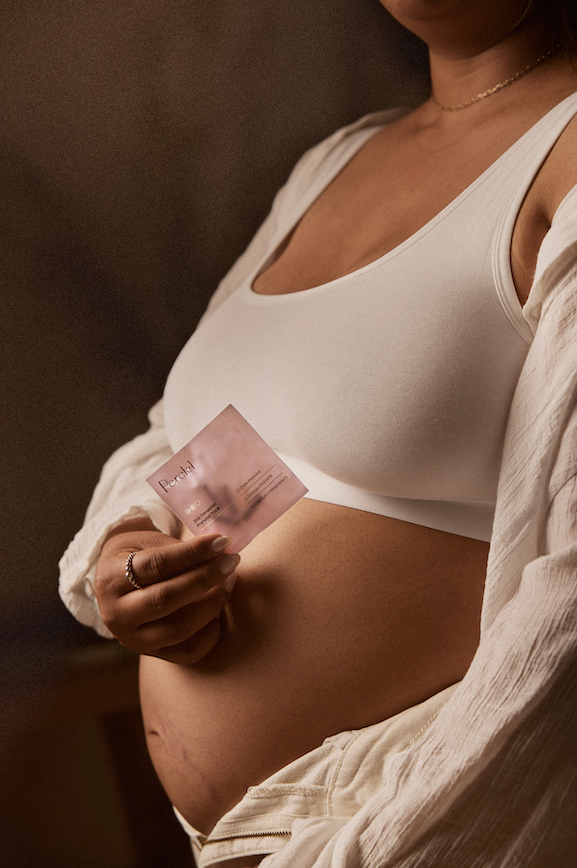If you’re 21 weeks pregnant, congratulations! You are officially over the hump—and you’re now closer to having your baby than you are to when you conceived your baby.
In other words, you’re in the second half of your pregnancy. But, what, exactly, does that look like—and as you navigate the latter part of your pregnancy, what do you need to do to keep yourself and your baby healthy?
Let’s take a look at everything you need to know about the 21st week of pregnancy:
How You’re Feeling at 21 Weeks
As mentioned, at week 21, you just crossed the midway point of your pregnancy—and are also slightly more than halfway through your 2nd trimester. At this point, the nausea and extreme fatigue you experienced early in your pregnancy should be in the rearview mirror—and overall, chances are you’re feeling much better now than you did during your 1st trimester.
That, however, doesn’t mean that you’re not experiencing any symptoms. Like any week of pregnancy, week 21 has its own signs and symptoms you’re likely to experience, including:
- Varicose veins. At this point in your pregnancy, you’re more likely to experience varicose veins.¹ The increased risk is two-fold; as you move further into your pregnancy, the increased weight of your uterus puts pressure on the veins in your legs—while at the same time, the higher progesterone levels you experience during pregnancy can weaken those veins. And that one-two punch can often lead to varicose veins.
- Bleeding gums. During week 21, you may also experience pregnancy gingivitis, which can cause inflamed gums that bleed when you brush and/or floss—and impacts about half of pregnant people.¹
- Urinary tract infections. UTIs are fairly common during pregnancy—including in the 2nd trimester.² If you constantly feel like you have to pee, experience pain when you urinate, and/or your urine is cloudy and/or has a strong odor, chances are, you have a UTI. UTIs are also sometimes accompanied by a fever and/or backache. (Whatever your symptoms, if you suspect you have a UTI, it’s important to get in touch with your doctor—as untreated UTIs can lead to more serious kidney infections.)
- Swelling. By this point in your pregnancy, your body has about 50 percent more blood and fluid than it had before pregnancy—which can lead to swelling in, for example, the feet, ankles, and/or fingers.
In addition to these symptoms, you’ll also likely experienced other common 2nd trimester pregnancy symptoms during week 21²—like nasal problems (like stuffiness and/or nose bleeds), skin changes (including melasma and/or stretch marks), headaches, and/or dizziness.³
$49.95
$49.95
$32.95
Shop the Article:

2nd Trimester Prenatal Pack
/ Month
Shop Now

3rd Trimester Prenatal Pack
/ Month
Shop Now

Sleep Support*
/ Month
Shop Now
What’s New With Your Baby
At week 21, it’s not just you that’s over the midway hump; your baby is also entering into the latter half of their development—and there is a huge amount of growth and change now and in the coming weeks.
So, what’s happening with your baby at week 21?
- At week 21, your baby is almost 11 inches long—about the size of a carrot.¹
- At this point in your pregnancy, your baby is likely moving a lot more—and those movements are likely more coordinated (hello, somersaults!), as their legs and arms are more in proportion by week 21.⁴
- Your baby may feel like it’s moving all the time—but it’s also getting plenty of sleep. At week 21, your fetus is sleeping as much as a newborn.⁴
- At this point in your pregnancy, your baby is learning how to swallow and digest—and getting both nutrition and hydration—by drinking small amounts of amniotic fluid each day.⁴
Your Week 21 To-Do List
You’re on the other side of the hump. But what can you do to support yourself and your baby during this second part of your pregnancy—and, more specifically, during this week? Let’s take a look at some actionable strategies for supporting yourself (and your baby!) during week 21:
1. Take your supplements
You want to make sure that your baby has the nutrients it needs to grow, develop, and thrive; that’s true during week 21—and during every other week of your pregnancy. And if you want to make sure your baby’s getting the exact nutrients it needs every step of the way during your pregnancy, it’s important to take supplements specifically designed to support your baby at each developmental stage.
And at 21 weeks, that means supplements formulated specifically for the 2nd trimester—like 2nd Trimester Prenatal Pack.
Developed by a team of leading OB-GYNs, the 2nd Trimester Prenatal Pack contains the supplements you need for optimal nutrition throughout your 2nd trimester (which, of course, includes week 21!)—including a prenatal vitamin, magnesium, calcium, and DHA + EPA (omega-3 fatty acids),
Some of the benefits of Perelel’s 2nd Trimester Prenatal Pack include:
- Supports baby’s brain development
- Builds strong teeth and bones
- Provides optimal nutrition to support your and baby’s health
- Supports relaxation
If you’re not already taking supplements regularly, week 21 is a great place to start. Grab Perelel’s 2nd Trimester Prenatal Pack and make it a part of your daily routine.
2. Make an appointment for your anatomy scan
If you haven’t already done so, another item you’ll want to check off your pregnancy to-do at week 21? Have your anatomy scan⁶, a more detailed ultrasound that allows the doctor to get more insight into how your baby is growing and developing. Anatomy scans typically happen between 18 and 22 weeks—so if you haven’t had or scheduled yours, you’ll want to call your doctor and get it on the books ASAP.
3. Kick your feet up
As mentioned, week 21 of pregnancy can come with some increased swelling—including in the feet and ankles. So, if you find yourself too swollen to get your shoes on, it’s time to kick back and (literally) put your feet up. When you elevate your feet over your heart, it allows your body to drain the excess fluid from the lower part of your body (thanks gravity!)—which, in turn, can help reduce swelling.⁶
Next up: What happened in Week 20, plus a complete guide to what to expect for your entire pregnancy.

theFolio in Your Inbox
Sign up to receive doctor-backed, stage-specific content in your inbox each week.
References:
- BabyCenter. 21 Weeks Pregnant.
- Mayo Clinic. 2nd trimester pregnancy: What to expect.
- NHS. Week 21.
- What to Expect. 21 weeks pregnant.
- Cleveland Clinic. 20-Week Ultrasound (Anatomy Scan).
- Cleveland Clinic. Swollen Feet and Ankles: Treatments to Try.
This article is for informational purposes only. It is not, nor is it intended to be, a substitute for professional medical advice, diagnosis, or treatment and we recommend that you always consult with your healthcare provider. To the extent that this article features the advice of physicians or medical practitioners, the views expressed are the views of the cited expert and do not necessarily represent the views of Perelel.





















